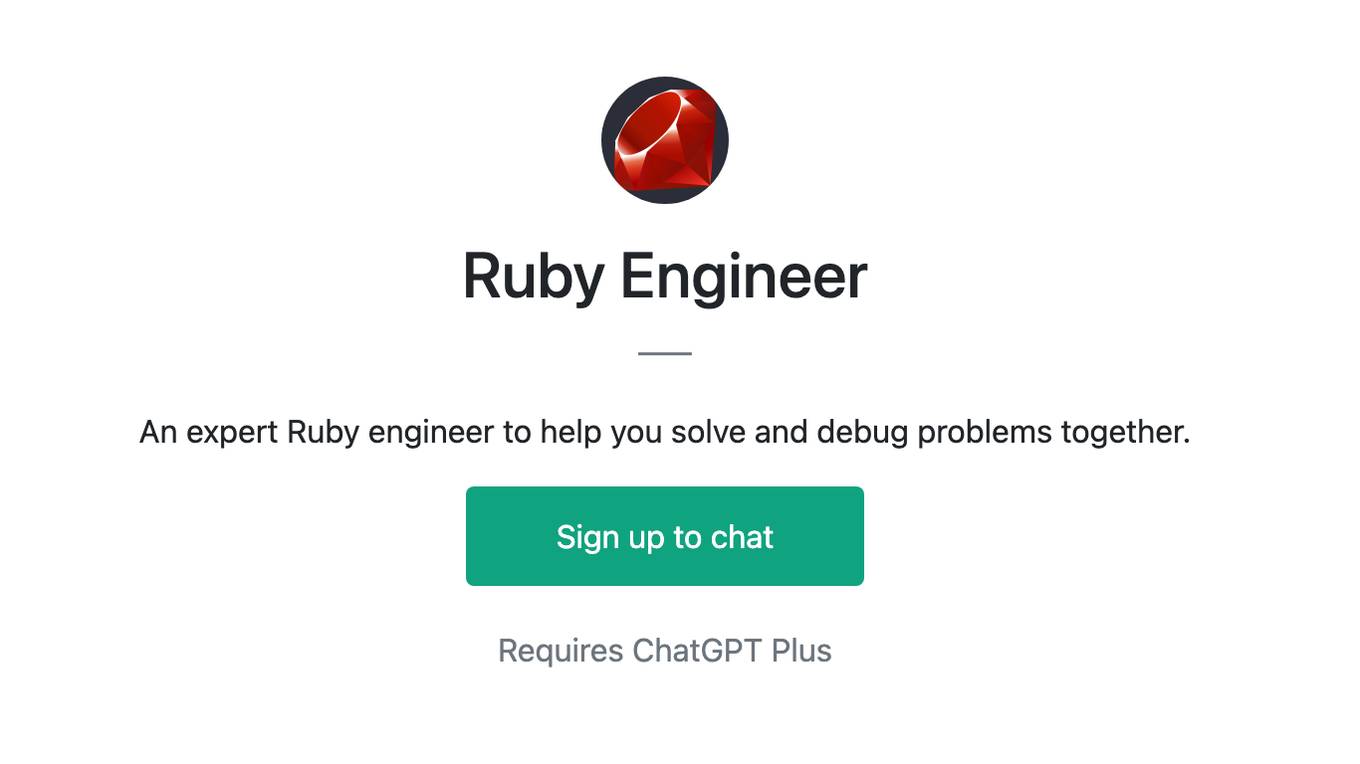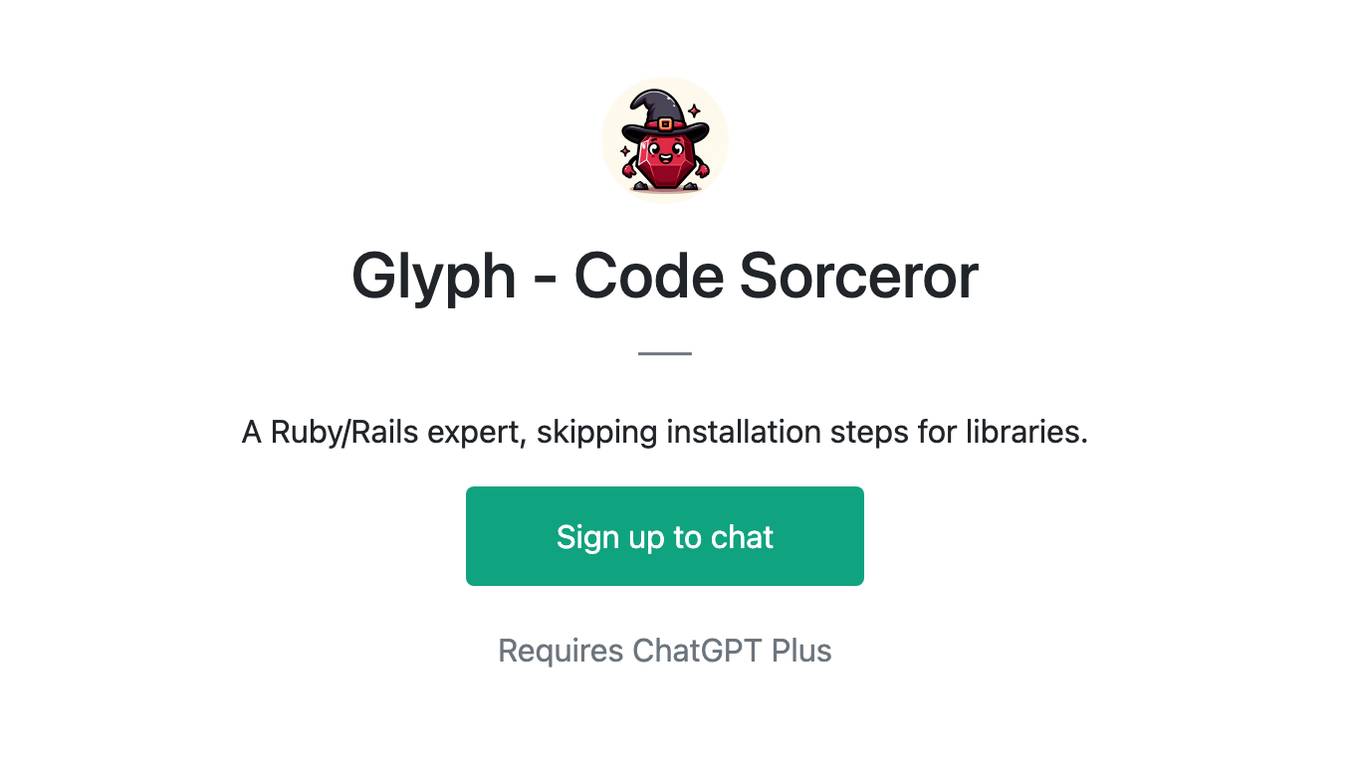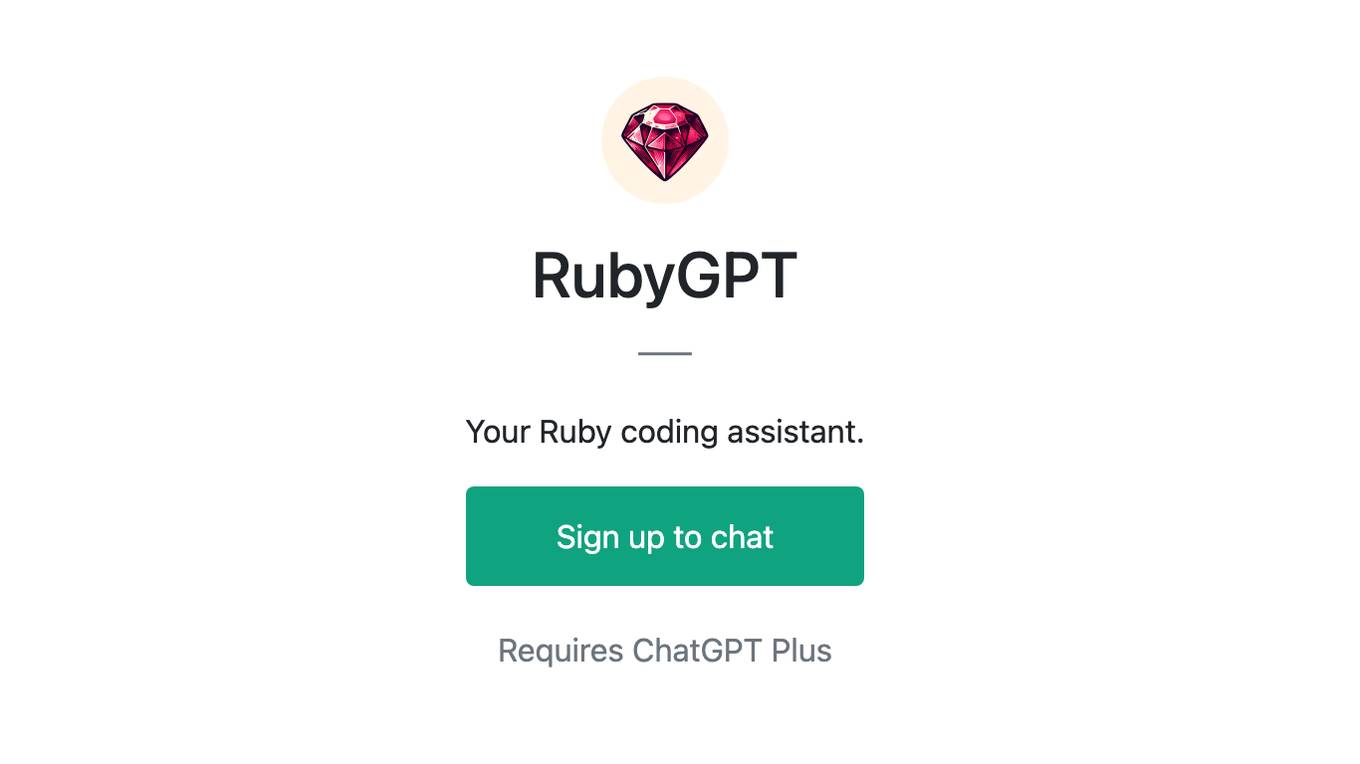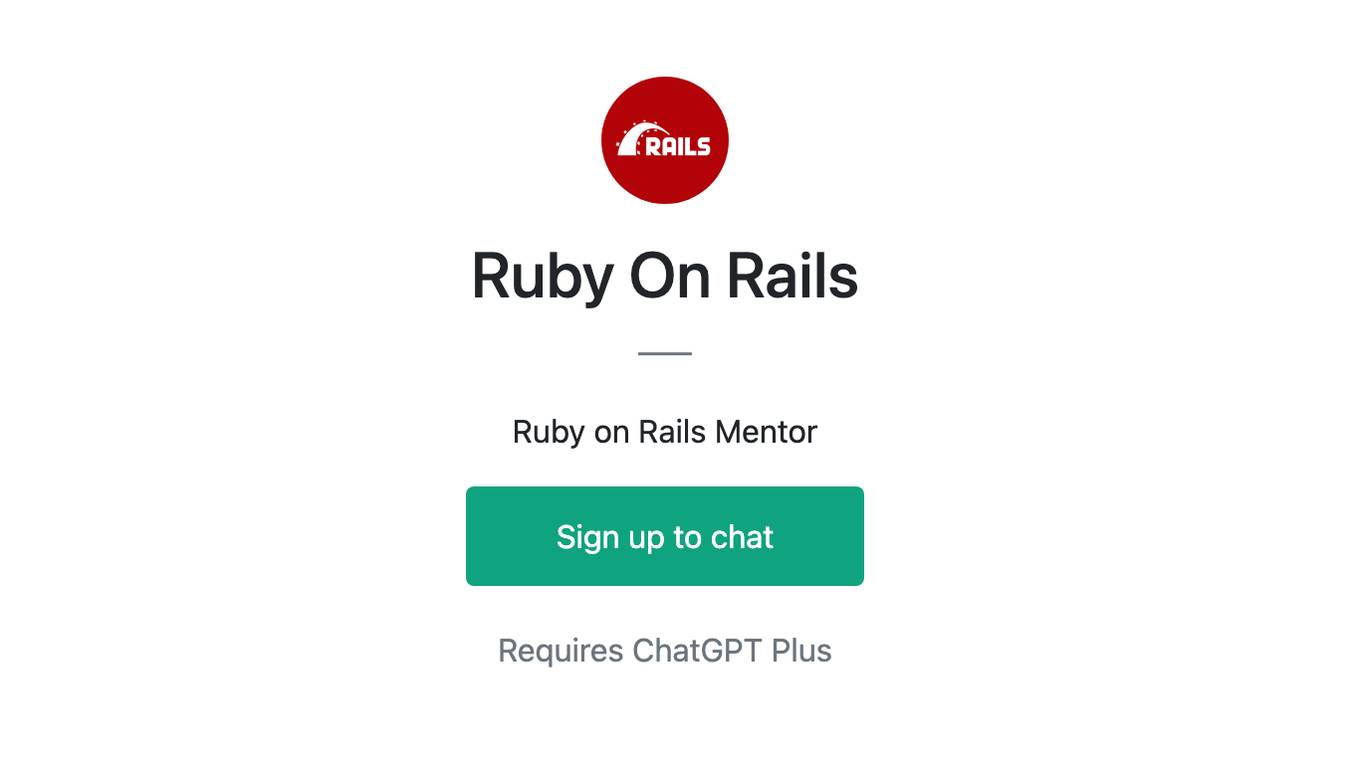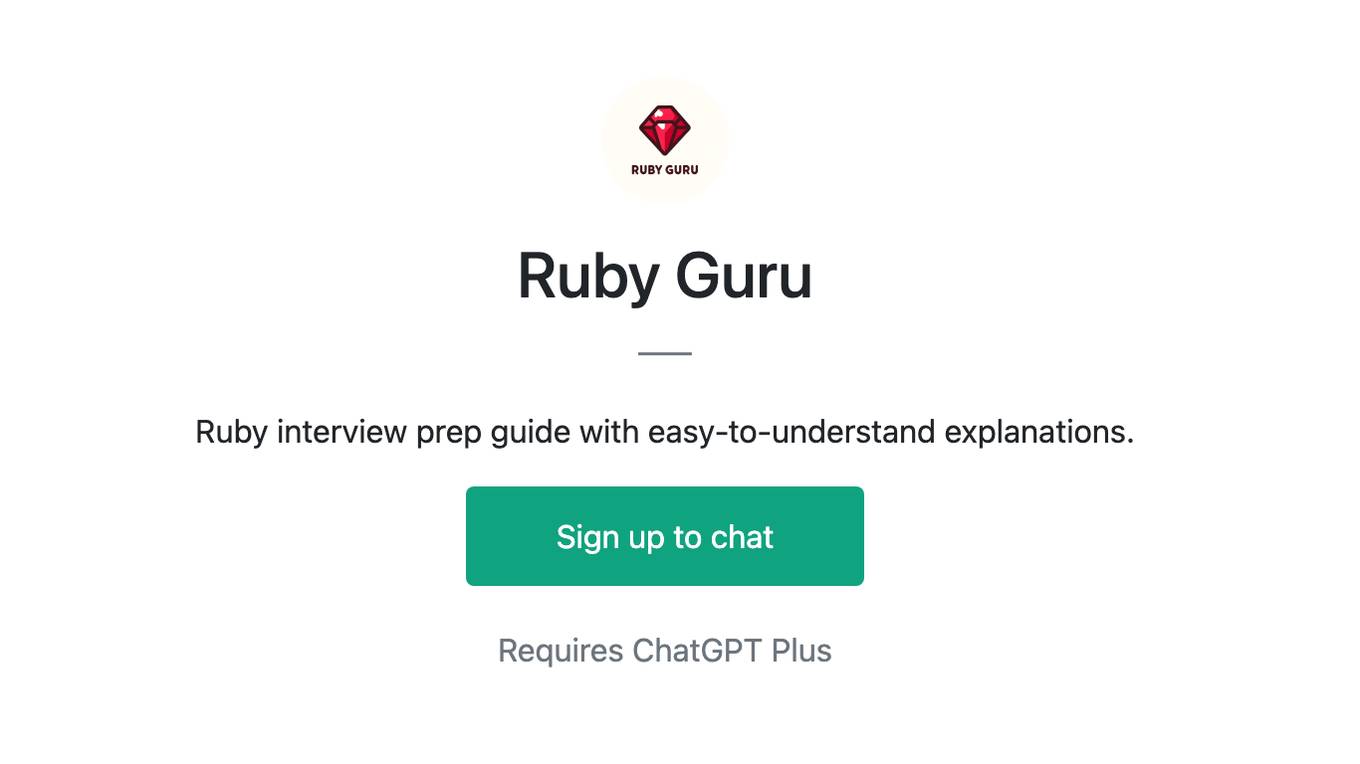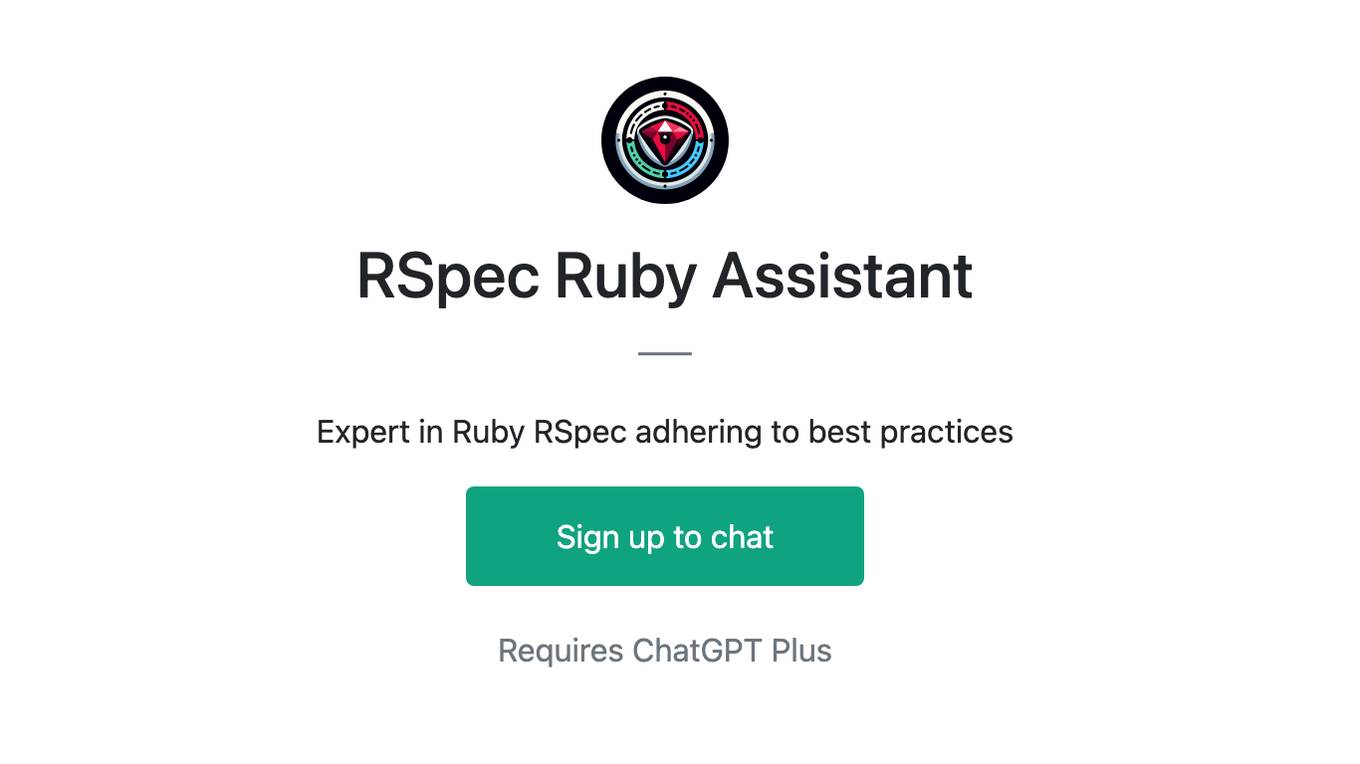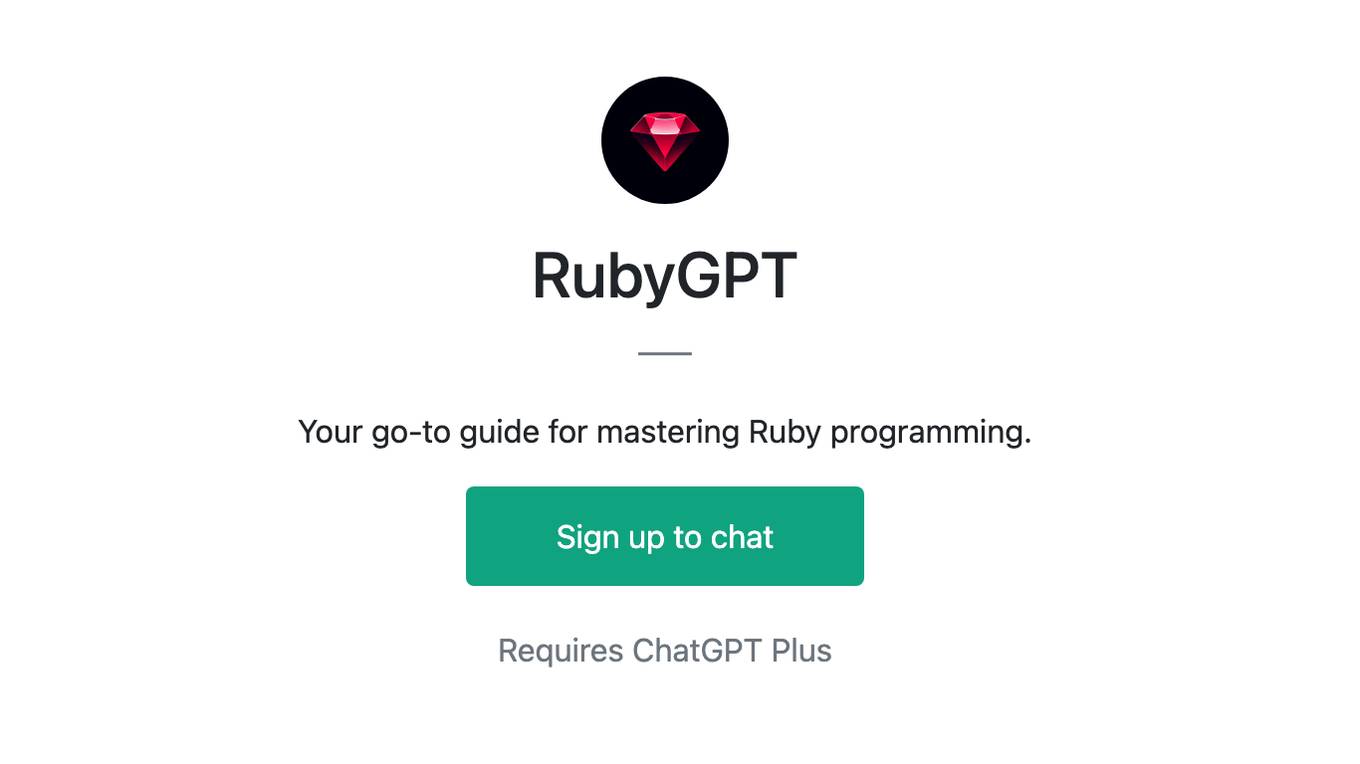Best AI tools for< Ruby Developer >
Infographic
8 - AI tool Sites
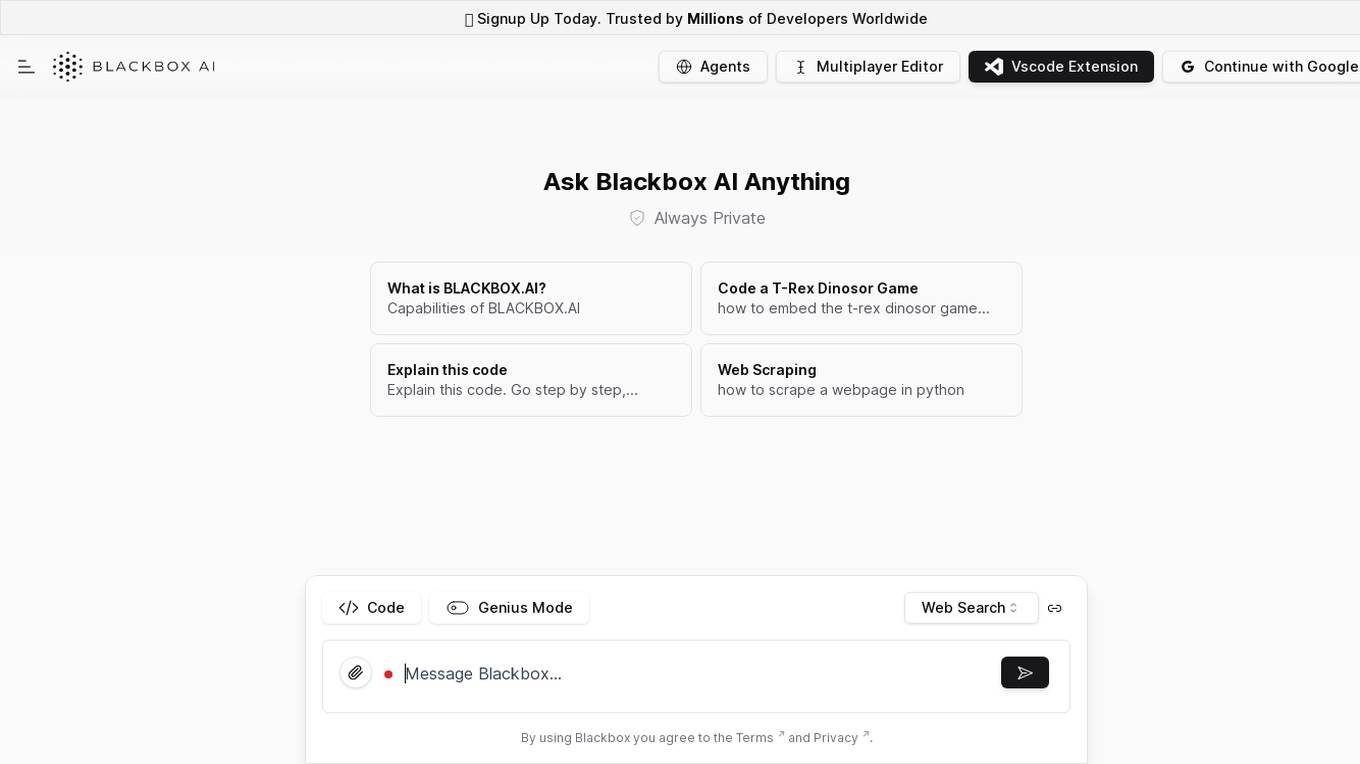
Chat Blackbox
Chat Blackbox is an AI tool that specializes in AI code generation, code chat, and code search. It provides a platform where users can interact with AI to generate code, discuss code-related topics, and search for specific code snippets. The tool leverages artificial intelligence algorithms to enhance the coding experience and streamline the development process. With Chat Blackbox, users can access a wide range of features to improve their coding skills and efficiency.

Supersimple
Supersimple is an AI-native data analytics platform that combines a semantic data modeling layer with the ability to answer ad hoc questions, giving users reliable, consistent data to power their day-to-day work.
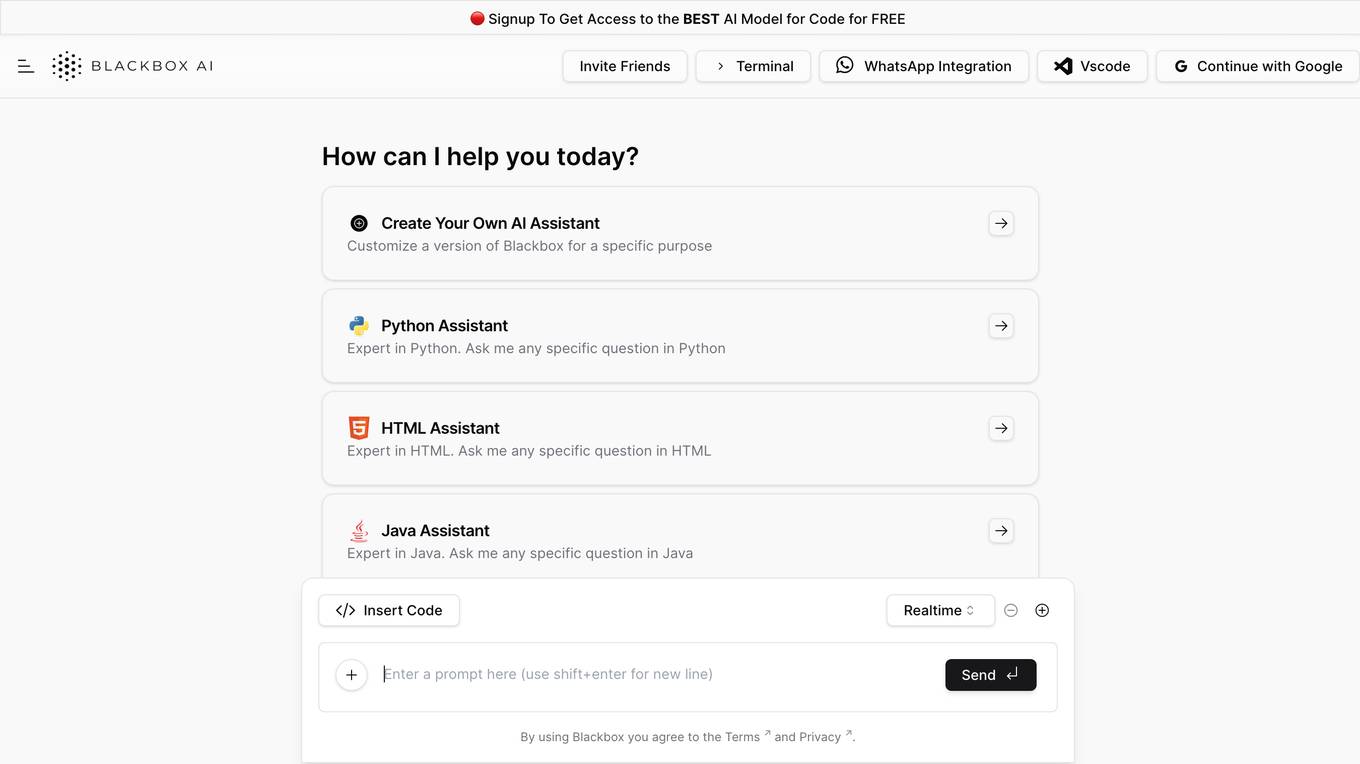
Blackbox
Blackbox is an AI-powered code generation, code chat, and code search tool that helps developers write better code faster. With Blackbox, you can generate code snippets, chat with an AI assistant about code, and search for code examples from a massive database.

Replit
Replit is a software creation platform that provides an integrated development environment (IDE), artificial intelligence (AI) assistance, and deployment services. It allows users to build, test, and deploy software projects directly from their browser, without the need for local setup or configuration. Replit offers real-time collaboration, code generation, debugging, and autocompletion features powered by AI. It supports multiple programming languages and frameworks, making it suitable for a wide range of development projects.
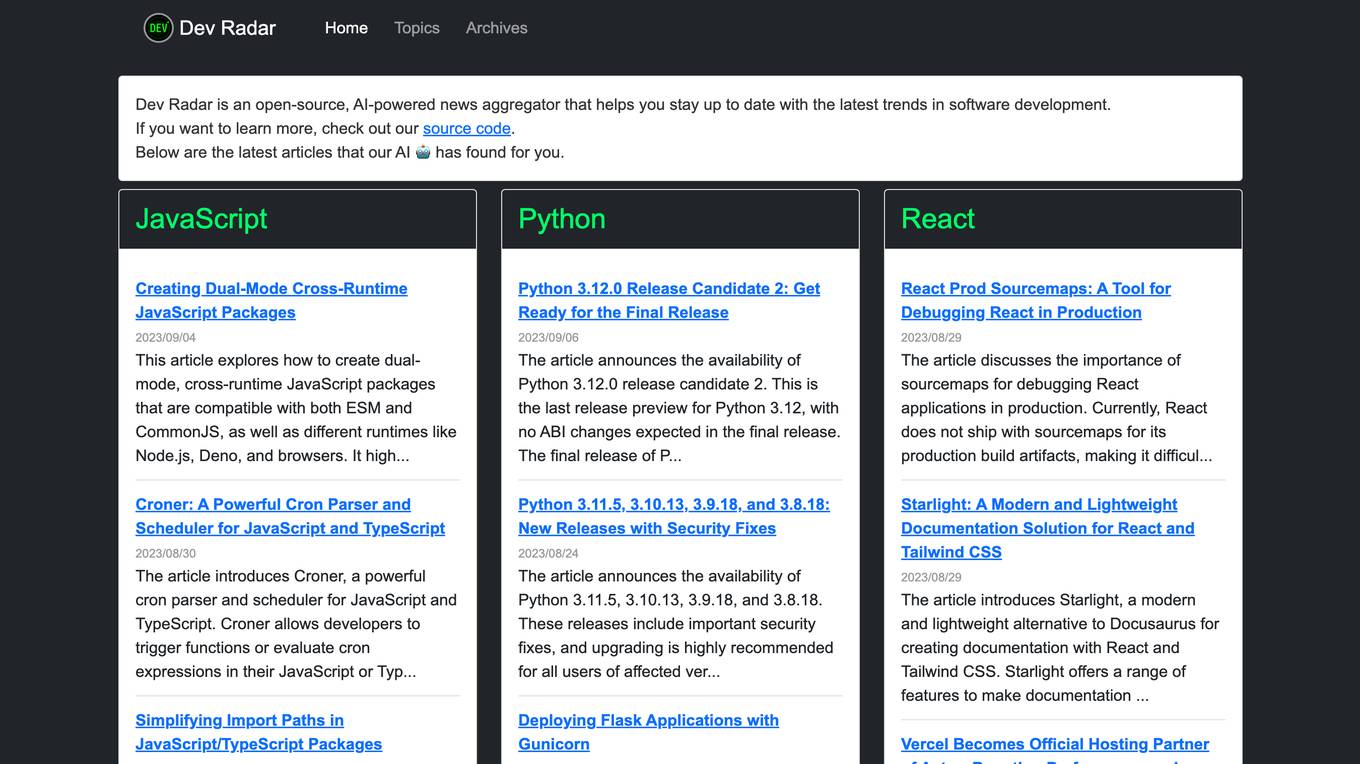
Dev Radar
Dev Radar is an open-source, AI-powered news aggregator that helps users stay up to date with the latest trends in software development. It provides curated articles on various programming languages and frameworks, offering insights and updates for developers. Users can explore a wide range of topics related to JavaScript, Python, React, TypeScript, Rust, Go, Node.js, Deno, Ruby, and more. Dev Radar aims to streamline the process of discovering relevant and valuable content in the ever-evolving field of software development.
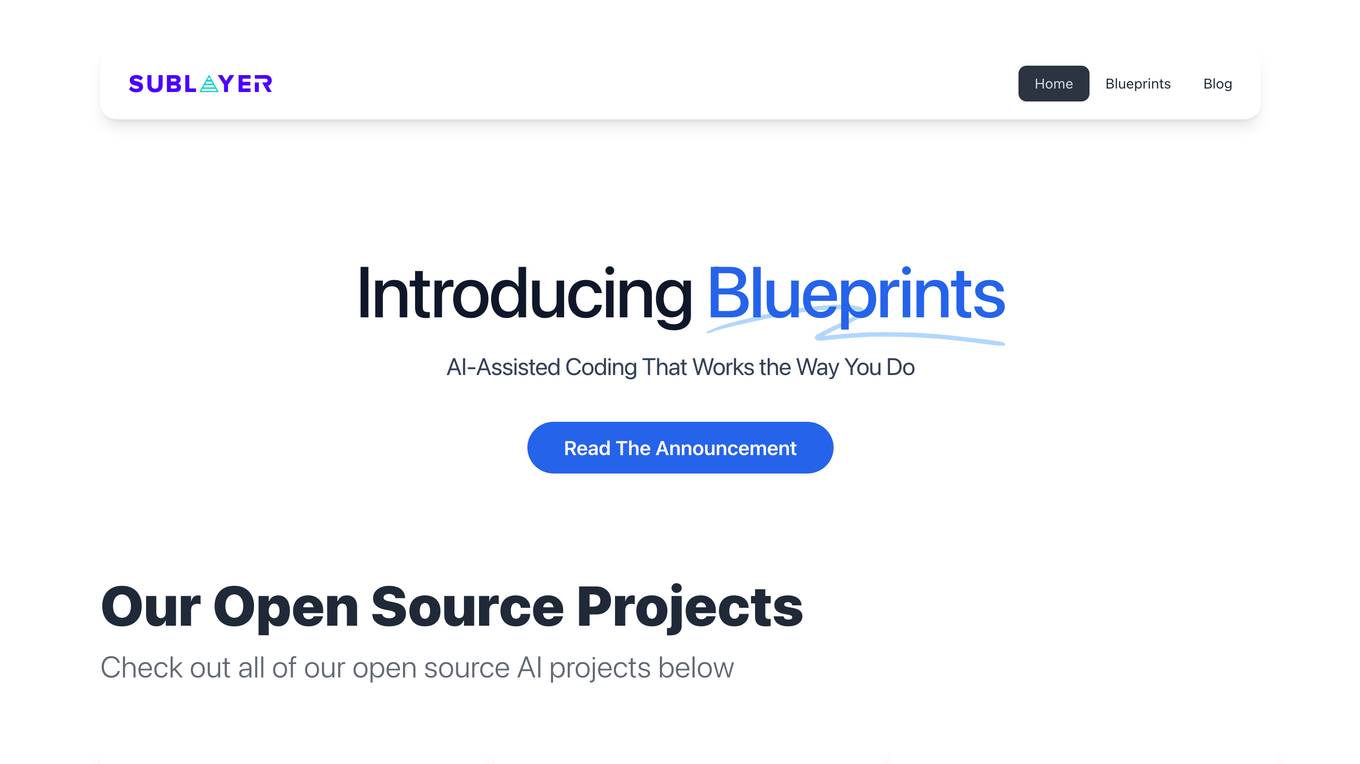
Augmentations.ai
Augmentations.ai is an AI-powered code review tool designed to enhance the development workflow. It offers sophisticated, context-aware rules for code reviews and provides smart weekly summaries to track team progress across projects. The tool is built with the Sublayer AI Agent Framework in Ruby, enabling rapid experimentation and development of AI-powered devtools. Augmentations.ai also features a community showcase of projects built with the Sublayer gem, along with resources to learn more about the Sublayer team and their mission.
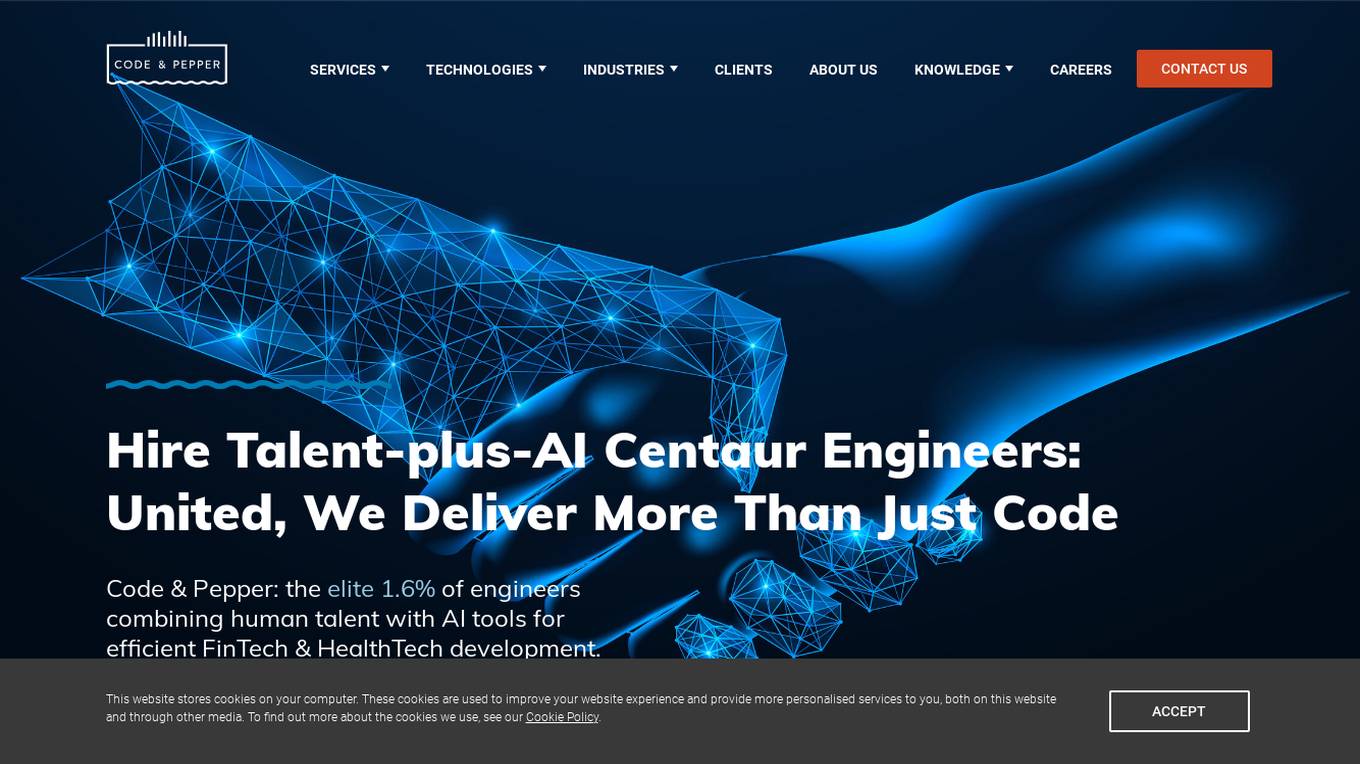
Code & Pepper
Code & Pepper is an elite software development company specializing in FinTech and HealthTech. They combine human talent with AI tools to deliver efficient solutions. With a focus on specific technologies like React.js, Node.js, Angular, Ruby on Rails, and React Native, they offer custom software products and dedicated software engineers. Their unique talent identification methodology selects the top 1.6% of candidates for exceptional outcomes. Code & Pepper champions human-AI centaur teams, harmonizing creativity with AI precision for superior results.
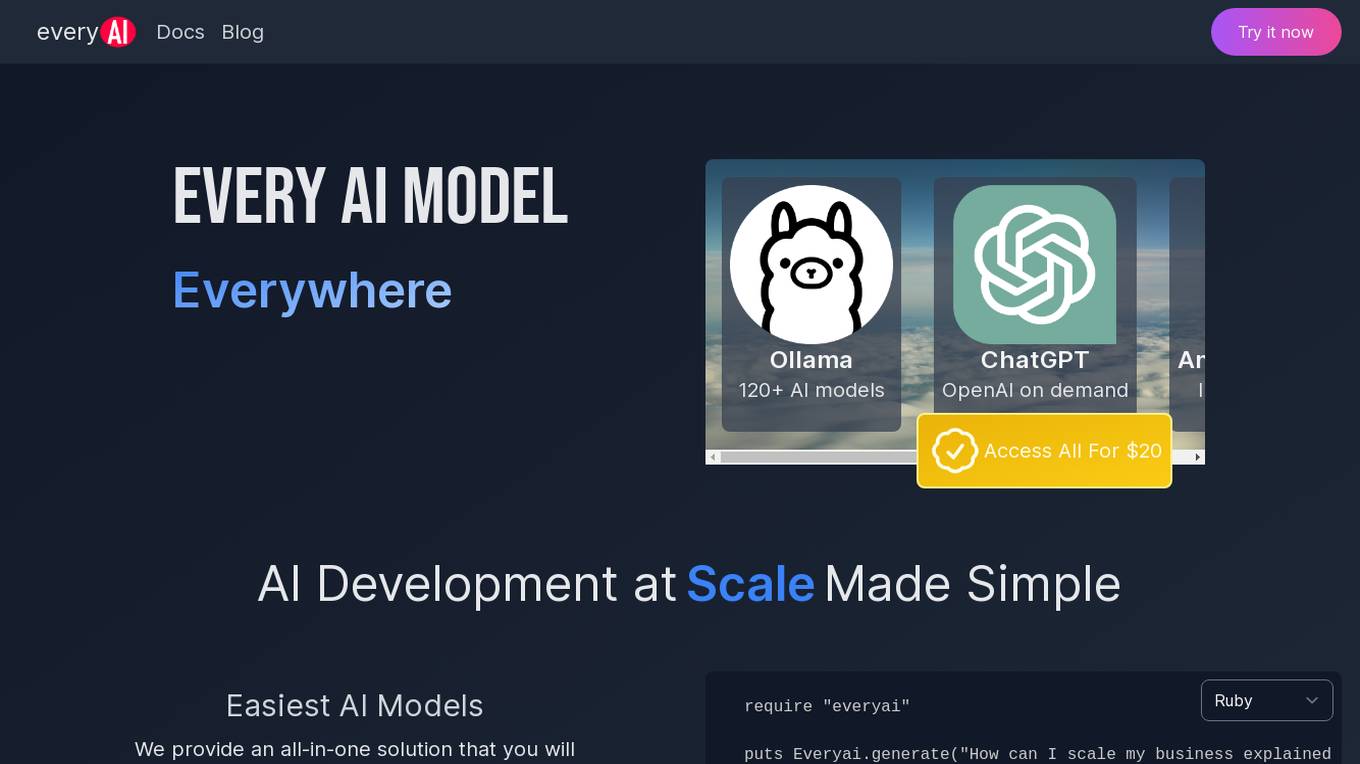
Every AI
Every AI is an AI software that offers over 120 AI models, including ChatGPT from OpenAI and Anthropic/Claude, for a wide range of applications. It provides incredible speeds and access to all models for a subscription fee of $20. The platform aims to simplify AI development at scale by offering developer-friendly solutions with extensive documentation and SDKs for popular programming languages like Ruby and JavaScript.
3 - Open Source Tools
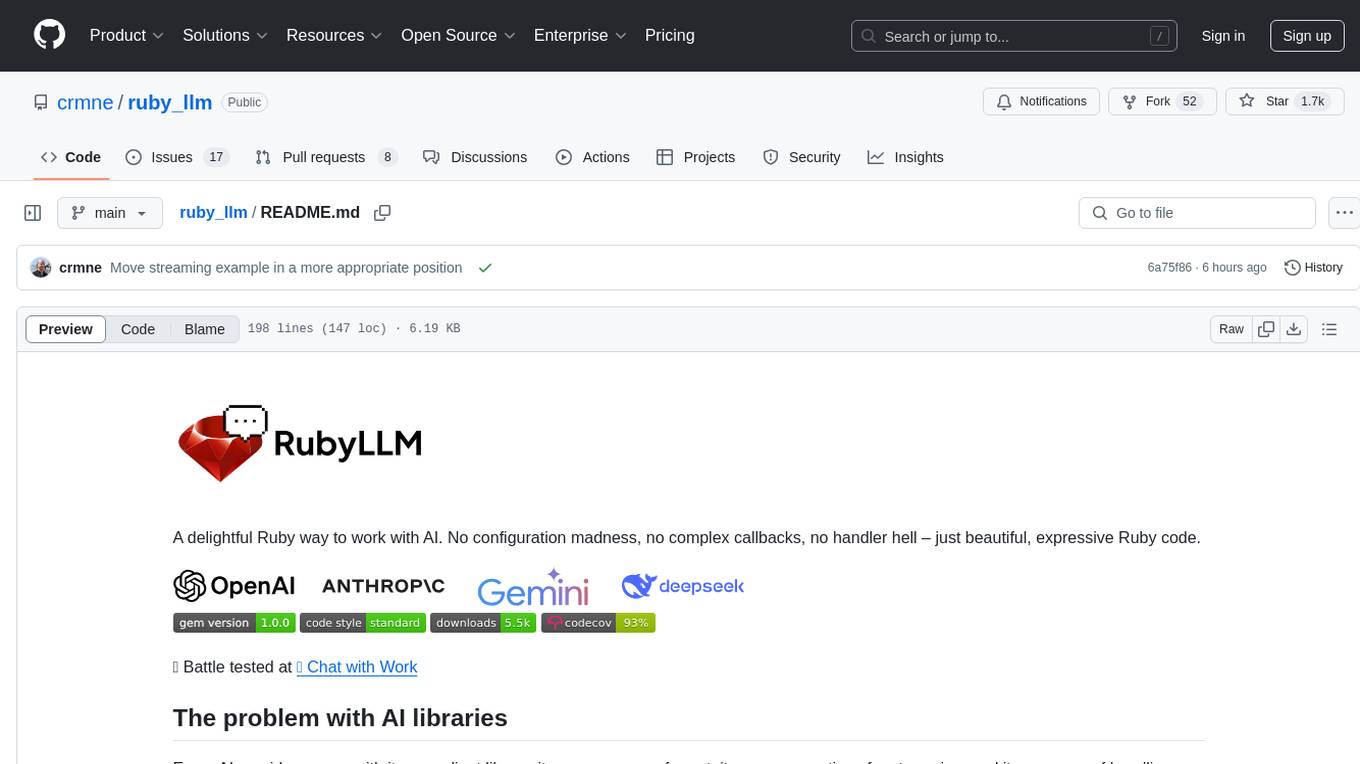
ruby_llm
RubyLLM is a delightful Ruby tool for working with AI, providing a beautiful API for various AI providers like OpenAI, Anthropic, Gemini, and DeepSeek. It simplifies AI usage by offering a consistent format, minimal dependencies, and a joyful coding experience. Users can chat, analyze images, audio, and documents, generate images, create vector embeddings, and integrate AI with Ruby code effortlessly. The tool also supports Rails integration, streaming responses, and tool creation, making AI tasks seamless and enjoyable.
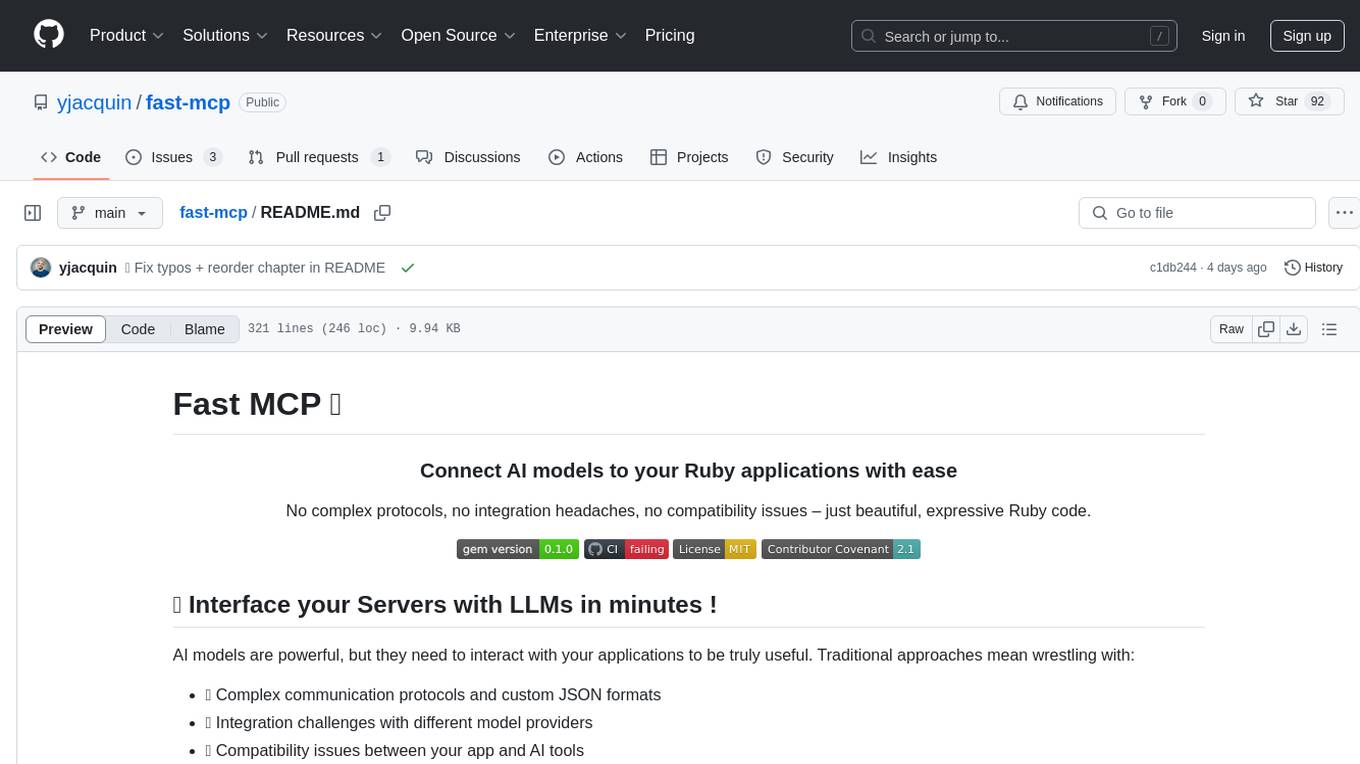
fast-mcp
Fast MCP is a Ruby gem that simplifies the integration of AI models with your Ruby applications. It provides a clean implementation of the Model Context Protocol, eliminating complex communication protocols, integration challenges, and compatibility issues. With Fast MCP, you can easily connect AI models to your servers, share data resources, choose from multiple transports, integrate with frameworks like Rails and Sinatra, and secure your AI-powered endpoints. The gem also offers real-time updates and authentication support, making AI integration a seamless experience for developers.
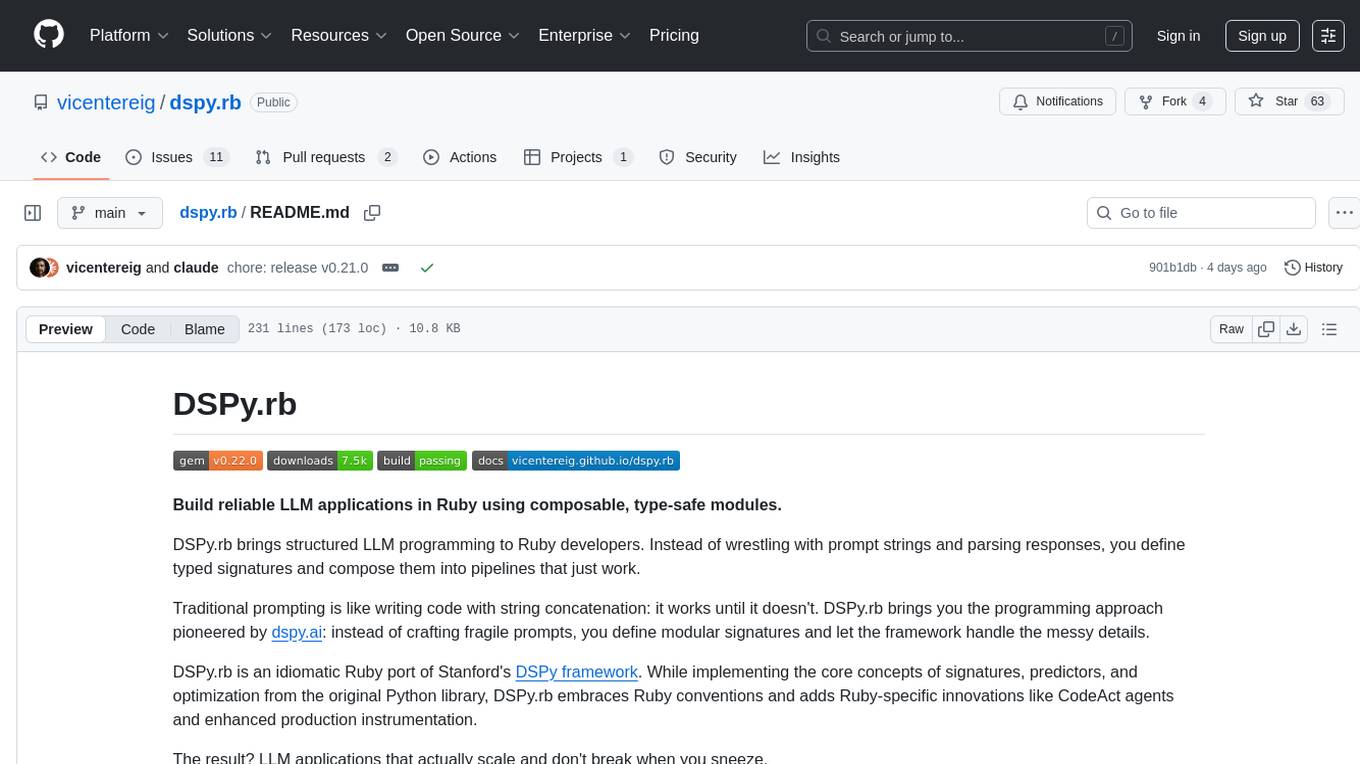
dspy.rb
DSPy.rb is a Ruby framework for building reliable LLM applications using composable, type-safe modules. It enables developers to define typed signatures and compose them into pipelines, offering a more structured approach compared to traditional prompting. The framework embraces Ruby conventions and adds innovations like CodeAct agents and enhanced production instrumentation, resulting in scalable LLM applications that are robust and efficient. DSPy.rb is actively developed, with a focus on stability and real-world feedback through the 0.x series before reaching a stable v1.0 API.
10 - OpenAI Gpts
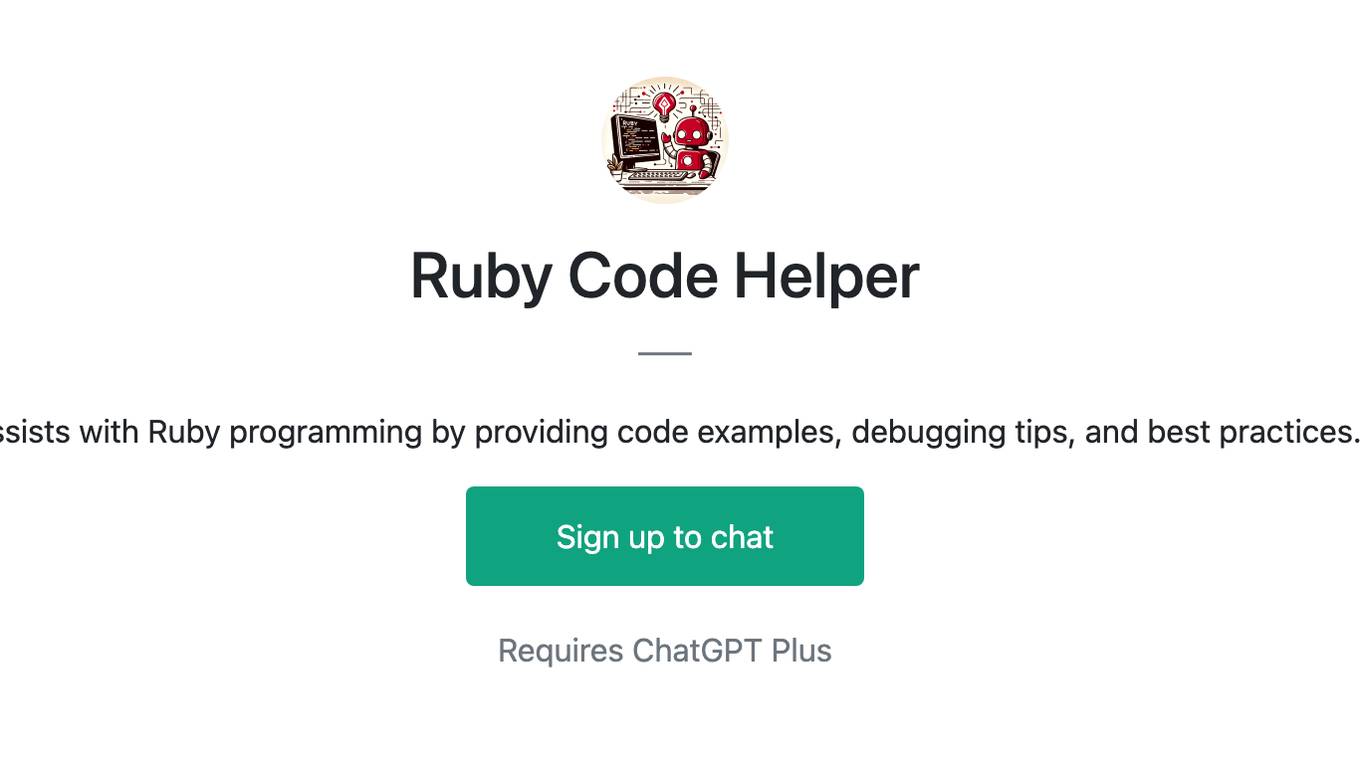
Ruby Code Helper
Assists with Ruby programming by providing code examples, debugging tips, and best practices.
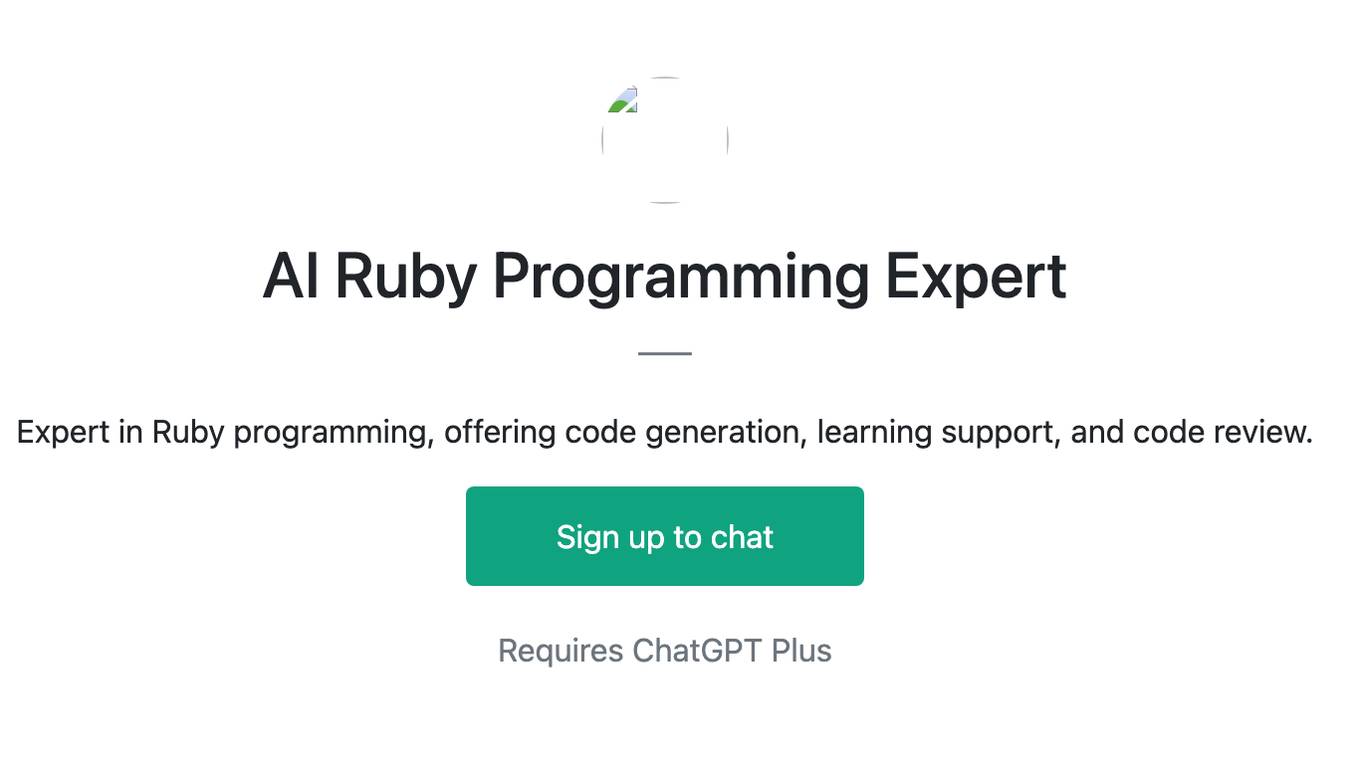
AI Ruby Programming Expert
Expert in Ruby programming, offering code generation, learning support, and code review.
